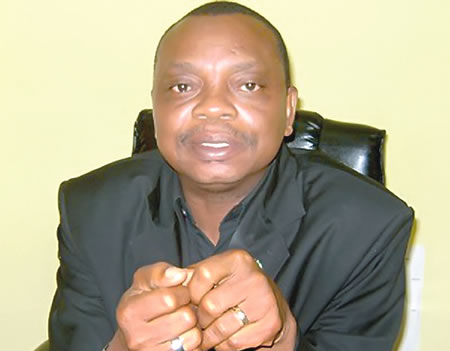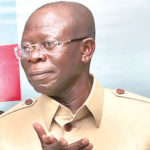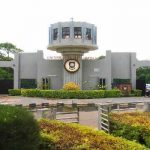Mayo Ayilaran is the Director General of Musical Copyright Society Nigeria (MCSN), largest owner of music catalogue in Nigeria. After many years in court ranging from repertoire ownership and permission to collect royalties on behalf of its members, he spoke to SEYI SOKOYA on the legal tussles the society collection outfit has been involved in; what it has cost MCSN to fight the cause of its members, among other several issues. Excerpts:
MCSN was out of business for nearly a decade. How has the comeback been since the approval by the National Copyright Commission and the Supreme Court judgment?
It hasn’t been easy. MCSN was like a dead company, but it has come back alive following the approval granted to it by the Attorney General of the Federation (AGF) and the Minister for Justice, to later secure one Court of Appeal, and two Supreme judgments affirming its position and legal status. The comeback would have been difficult without these judgments, because Tony Okoroji attacked the AGF for the approval of MCSN as a collective society by the Nigerian Copyright Commission (NCC). He abused the minister and some top officials of the Federal Ministry of Justice, because of that approval against his wish, especially when past ministers had refused to change the status quo of his forced monopoly over the copyright terrain.
He even wrote series of petitions against the minister and campaigned vigorously in the media against MCSN, all of which were major distractions. He used Copyright Society of Nigeria (COSON) to challenge the approval at the Federal High Court, Lagos. COSON’s case challenging the AGF directives, and the approval of MCSN, was eventually dismissed by the Federal High Court in February 2018. MCSN, thus gradually started to settle down for business. The approval was nothing short of resurrection.
What is the implication of the Supreme Court judgment on the legal status of MCSN for copyright administration in general?
The first implication was that they vindicated the AGF, Abubakar Malami, as a believer of justice and equity. The judgments affirms the Minister’s position based on clear vision and understanding of the law on the subject matter of copyright administration in general. Imagine if the judgments went otherwise, MCSN would most likely not have survived Okoroji’s onslaught. Secondly, the judgments implied that MCSN has not lost much as it could recoup whatever might have been lost, or stolen from it. The judgments firmly put MCSN on a very high pedestal in the administration of copyright in Nigeria. MCSN has become a reference point, a precedent, in copyright administration.
Reports have it that COSON is still collecting royalties on behalf of intellectual property owners despite Court›s judgement. How is that possible and MCSN is not doing anything?
This can be best addressed by the NCC. To us in MCSN, COSON, without NCC’s approval, cannot lawfully license, collect or distribute royalties in respect of copyright in Nigeria. COSON, being an organisation that came into existence after the establishment of the NCC, and the enactment of copyright amendment decrees of 1992, 1999 and Copyright Act 2004, cannot operate without NCC’s approval. The last Supreme Court judgment of December 14, 2018, in MCSN vs. Compact Discs Technologies & Ors, is clear on this. We understand that the NCC has charged COSON, Okoroji and some top officials of COSON to court for breaching the law on this issue, which underscores the fact that COSON has no right, without NCC’s licence, to collect royalties.
Some are of the opinion that MCSN, COSON, even NCC, with all these back and forth among stakeholders is just politics and that it’s all a family affair because you guys are doing whatever you want and nobody can force any of you to face the book in case you are found wanting. For example, the blatant disregard to court’s judgement banning one of you from collecting royalties and it still is doing that. Are you all above board?
MCSN is certainly not in the same class with COSON. In the past, COSON was using the NCC to oppress and hound MCSN, but MCSN is beyond that type of intrigue. We would hold everyone responsible under the law, including ourselves in MCSN. Most of our funds are with COSON and we are going to make them account for them. Even our repertoire which they looted would be accounted for, and those who have been exploiting our repertoires (music, sound recordings and even audio visuals) would be made to pay. We are working closely with the NCC, under the new Director General, John Asein, to reset the copyright sector for good and profitable business for our creators, the users and the government.
For all those years that MCSN was embroiled in legal actions with COSON and others, and therefore couldn›t function as a Collective Society, what did you lose in cash and otherwise?
As I said earlier, whatever was lost in those years would be recouped. We may not be able to accurately say how much, but it is huge both in financial terms and emotional trauma. How much can one put on prison experience, which MCSN’s officials suffered from the petitions and his collaborators under Nigerian Music Industry Coalition, with which the NCC charged MCSN and seven of its officials to court in seven different criminal cases in different divisions of the Federal High Court across the nation? How much can we put on the name-calling and serious libel against MCSN and its top officials? How do we calculate the unlicensed use of creative works and uncollected royalties under the claim of “we don’t know who to pay to? The fact is that MCSN and its leadership have been magnanimous in victory, but if pushed, we would launch and claim what is due. In all, Nigeria and the entire creative industry lost not less than N5 trillion in all these struggles.
Do you think MCSN can bounce back to reckoning as many intellectual property owners appear to have lost faith in any of the society’s operative in Nigeria?
MCSN is certainly bouncing back. It is not possible to do away with the services of collective management organisations (collecting societies) in most part of the world, including Nigeria, where there is a copyright law or regime. It is the easiest and most practicable way to harness, and enjoy the huge rights granted by law to the creators of intellectual works. The bad eggs in the societies would be exposed and expunged from the societies and when necessary, with the force of law and the societies would continue to grow in relevance.
What are the roles expected of users of music in making our musicians comfortable from their creations?
They should readily pay for the music they exploit in their businesses.
What’s the danger in exploiting music for commercial purposes without permission?
Such people risk litigation and heavy damages and fines that may collapse their entire business and even prison terms.
You were seen in a handshake and a hug with Tony Okoroji at a press conference organised by the NCC in Lagos recently. Many said it was for a show and that the two of you are still wary of each other. Did you wish for once that all could get back to normal with you and Tony and MCSN, COSON after many years of legal actions and counter actions between the two of you?
I was not in any handshake with Okoroji not to talk of a hug. As a Christian, I would do what the Bible teaches about forgiveness, that is, if the sinner retraced his steps and sincerely ask for forgiveness. Okoroji has not done any of these. Even at that, it doesn’t mean that I would be cozy with someone or any situation that I have every cause to be careful with.
How can the lot of creators be improved through the copyright laws. Any need for changes?
The basic provisions have been made in the existing law to better the lot of creators. It is for the creators to seize the opportunities available to them to improve their lots. We have shown in many of our cases that the meat lies in going after the protection of the rights with maximum deployment of legal process, particularly civil actions with a few criminal actions as back up. For instance, MCSN was awarded N6 billion in damages against Multichoice Nigeria Limited; if the NCC, or the Nigeria Police had been engaged to launch simultaneous criminal actions against the chairman and top officials of the company as allowed by the Copyright Act, the bulk of the money awarded would have by now been in creators’ pockets. We are exploring that option now.
With the expiration and non-renewal of COSON›s licence, does it mean that MCSN is now a monopoly?
No. But it depends on how people want to see it. The fact remains that the law does not restrict the terrain to monopoly, but if situation forced it, then it is not the fault of the law.
What is the status of MCSN’s repertoire of both local and foreign?
MCSN’s repertoire remains intact. This has been confirmed in various judgments including the Supreme Court judgments.
How will educate Nigerians on copyright as a big business?
I will give you a simple scenario. Let’s take the total numbers of hotels in Nigeria to be one million, of course they are more. Let each of the one million hotels pay N100,000 annually for the music consumed in the hotels, we would have N10 billion annually just from hotels. Now think of other platforms where music and sound recordings and even audio-visuals are exploited or consumed, such as in broadcasting (over 200 stations), bars, restaurants and lounges, online/digital platforms, etc. Now turn to copyright levy on materials from which creative works can be exploited such as computers, cell-phones, audio/video recorders, blank tapes and compact discs, etc. When all these are harnessed, we are talking of a huge economic sector that may even overtake the oil and telecommunications industries. It is for all concerned to get their acts together by settling down to do clean, honest and transparent businesses, rather than grand-standing and posturing.
WATCH TOP VIDEOS FROM NIGERIAN TRIBUNE TV
- Relationship Hangout: Public vs Private Proposals – Which Truly Wins in Love?
- “No” Is a Complete Sentence: Why You Should Stop Feeling Guilty
- Relationship Hangout: Friendship Talk 2025 – How to Be a Good Friend & Big Questions on Friendship
- Police Overpower Armed Robbers in Ibadan After Fierce Struggle






